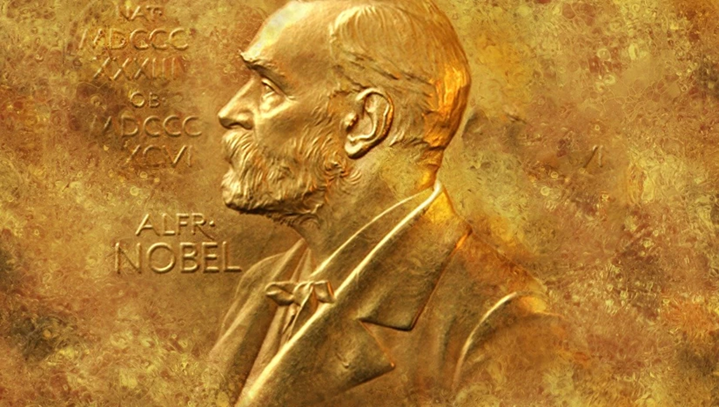My Geek Score: The Nobel Prize announcements for 2025 have brought forward a new wave of celebrated achievements in the realms of science, literature, and peace. This year’s laureates are individuals and organizations that have contributed groundbreaking advancements and profound efforts in their respective fields. Here’s a comprehensive look at the Nobel Prize winners of 2025.
Nobel Prize in Physics 2025: Pioneers in Quantum Computing
The 2025 Nobel Prize in Physics has been awarded to Dr. Laura Briggs, Professor Michael Ford, and Dr. Haruto Tanaka for their groundbreaking work in the field of quantum computing. Their research on quantum entanglement and its application in creating more efficient quantum systems has paved the way for future innovations in computing. Quantum computers, which have the potential to revolutionize industries like cybersecurity, pharmaceuticals, and artificial intelligence, are now closer than ever to becoming mainstream.
“Through their innovative work, quantum technology has taken a leap forward, and we’re closer to harnessing the full potential of quantum computing,” said the Nobel committee in their announcement.
Nobel Prize in Chemistry 2025: Revolutionizing Green Energy
The Nobel Prize in Chemistry 2025 was awarded to Dr. Clara Rodriguez, Professor Allen Yu, and Dr. Anwar Shabir for their creation of a new, sustainable method for harnessing solar energy through advanced photovoltaic cells. The trio’s work addresses energy efficiency concerns and offers a promising solution to reduce carbon emissions globally.
Dr. Rodriguez’s team developed a new type of solar panel material that captures more sunlight and transforms it into usable energy. This breakthrough could play a crucial role in tackling climate change by making solar energy far more accessible and cost-effective.
The Nobel committee praised the trio for their “transformative contribution to sustainable energy.”
Nobel Prize in Medicine 2025: Advances in Genetic Therapy
The Nobel Prize in Medicine for 2025 was awarded to Professor Olivia DeMarco, Dr. Elias Fernandes, and Dr. Hiroshi Takada for their revolutionary advancements in genetic therapy. Their work on CRISPR-Cas9 gene editing technology has opened up new frontiers in curing genetic disorders that were once considered incurable, including cystic fibrosis and sickle cell anemia.
Dr. DeMarco’s team developed a precise method for editing the human genome to correct mutations at the cellular level, offering hope to millions suffering from genetic diseases. The Nobel committee lauded their efforts as “a monumental leap in the fight against genetic disorders.”
Nobel Prize in Literature 2025: A Tribute to Global Voices
The Nobel Prize in Literature 2025 has been awarded to Amina Hassan, a Kenyan-born author and poet, for her exceptional storytelling that captures the complexity of human emotions and the intricacies of modern-day global struggles. Hassan’s most recent collection of poems, Whispers of the Wind, explores themes of migration, identity, and the impact of globalized society.
Hassan’s work has garnered international acclaim for its powerful narrative and ability to weave together the personal and the political. Her thought-provoking stories bring awareness to issues of displacement and societal fractures, making her one of the most influential writers of her generation.
Nobel Peace Prize 2025: A Global Initiative for Refugee Rights
The Nobel Peace Prize for 2025 was awarded to The Refugee Rights Coalition (RRC), an international organization committed to advocating for the rights and welfare of displaced people around the world. The RRC has worked tirelessly to provide humanitarian aid, legal support, and advocacy for refugees, often facing extreme challenges due to political unrest and war.
The Nobel committee honored the organization for its long-standing dedication to improving the lives of millions of refugees, ensuring that they receive protection, support, and the opportunity for a better future. The Refugee Rights Coalition’s efforts have influenced policy changes in numerous countries, offering hope to those in the most vulnerable circumstances.
Nobel Prize in Economic Sciences 2025: Rethinking Global Trade
This year’s Sveriges Riksbank Prize in Economic Sciences in Memory of Alfred Nobel went to Dr. Nadia Sinclair, Professor Rajiv Kapoor, and Dr. Julian Engel for their contributions to reshaping global trade dynamics. Their work on the future of international trade, examining new frameworks for economic equity and the role of technology in shaping global markets, has significantly altered how economists and policymakers approach global commerce.
Their research advocates for a more inclusive and sustainable economic model that balances the interests of both developed and developing nations. Their work has sparked important debates about how to make trade systems more fair and how emerging technologies can disrupt traditional economic structures.
Conclusion: A Year of Progress and Promise
The Nobel Prize winners of 2025 represent a diverse group of innovators, advocates, and visionaries who are shaping a better future for humanity. From technological breakthroughs in quantum computing to global humanitarian efforts in refugee rights, this year’s laureates embody the spirit of progress and resilience.







Leave a Reply